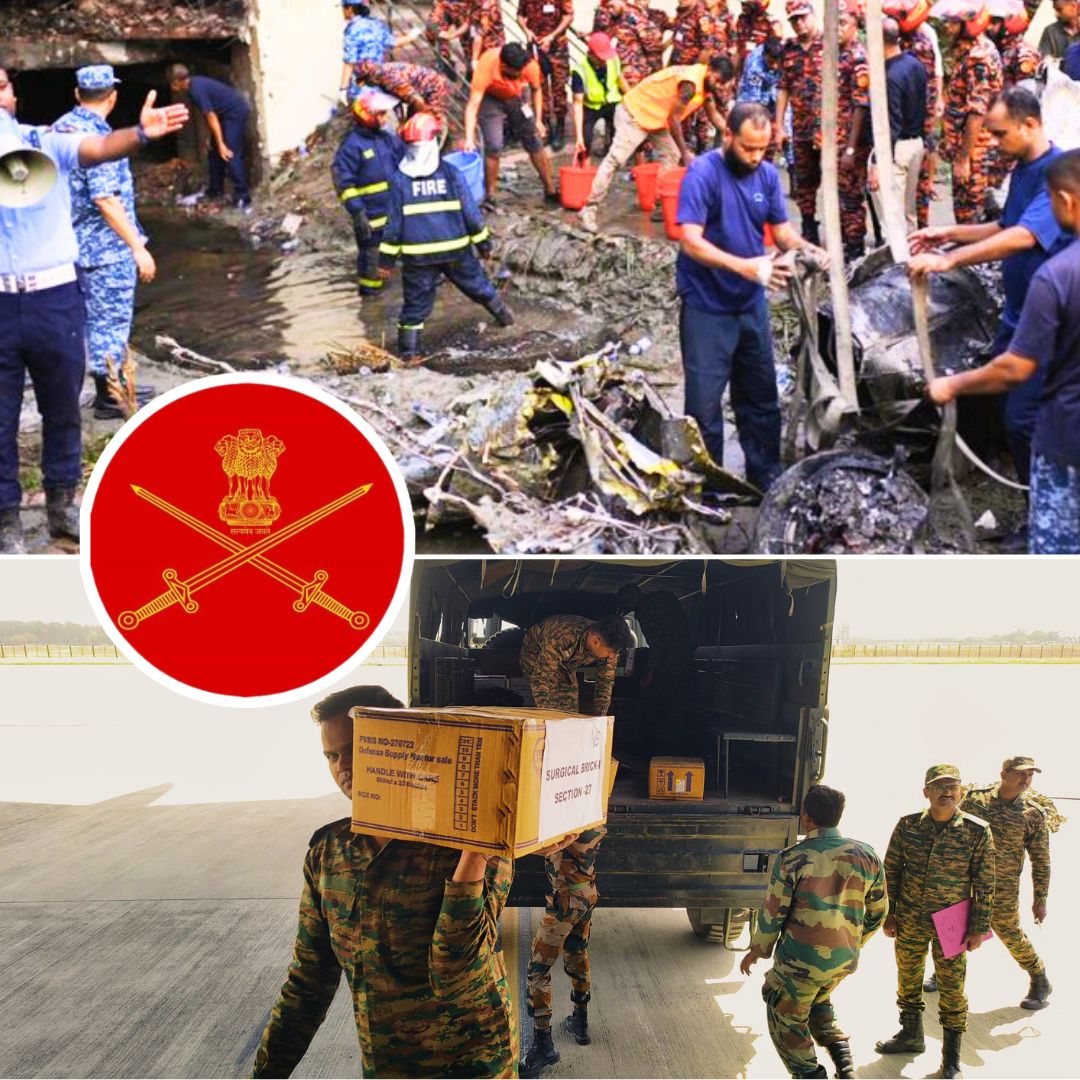A Bangladeshi Air Force F-7BGI fighter jet crashed into Milestone College in Dhaka’s Uttara neighbourhood on July 21, 2025, killing at least 31 people—mostly children under 12—and injuring over 165. The incident, triggered by a mechanical failure, is being called one of the worst air disasters in Bangladesh’s history.
In response, India has sent a team of burn-specialist doctors to assist with critical care, while government and military officials in Bangladesh have pledged a thorough investigation and support for the victims. Students, families, and civil society across the country are demanding justice, reform, and compensation.
Rescue Efforts and Medical Aid: A Race Against Time
The crash took place just after 1 p.m. local time, as the jet, flown by Flight Lieutenant Toukir Islam on his first solo mission, experienced a severe malfunction minutes after departing BAF Base Bir Uttom A. K. Khandker. The pilot desperately tried to steer the aircraft away from the densely populated area but was unable to regain control at low altitude. The jet crashed through the main gate and lower floors of the Haider Ali Building, where nearly 100 primary and secondary students were present before lunch break. The resulting fire and explosion led to scenes of panic and devastation, with eyewitnesses describing “flames, smoke, and the sound of screaming children.”
Emergency responders, including nine fire units and two platoons of the Border Guard, reached the site within minutes. Hospitals across Dhaka, like the National Institute of Burn and Plastic Surgery, have been overwhelmed, with dozens of children admitted for severe burns, and at least 25 remaining in critical condition. In a significant act of regional solidarity, India responded to Bangladesh’s request for urgent help by dispatching a team of burn specialists and nurses to treat the most severely injured and advise on possible transfers for advanced care.
A Nation Mourns: Funeral, Mourning, and Protests
Bangladesh’s government swiftly declared a national day of mourning on July 22, with flags at half-mast and nationwide prayers for the victims. Chief Adviser Muhammad Yunus announced a high-level investigation, expressing “profound pain and condolences” to the affected families, and assuring the public that the incident would be prioritised for government action. The Bangladesh Air Force honoured the deceased pilot with a funeral parade in Kurmitola, attended by military and civilian leaders, before his burial in Rajshahi.
Meanwhile, the scale of young lives lost and injured has triggered a wave of grief and public anger. Students and activists marched through Dhaka’s streets, rallying outside government offices to demand the resignation of the education adviser, prompt compensation for victims’ families, improved school safety, and an immediate review of the country’s ageing military aircraft fleet. Opposition parties postponed rallies, and Bangladeshi cricketers joined the chorus of condolences.
Investigating the F-7BGI and Questions of Accountability
The FT-7BGI, a trainer variant of the Chengdu J-7 and the most advanced F-7 model built, was delivered between 2013 and 2022 as part of Bangladesh’s efforts to modernise its air force. Despite upgrades, the F-7 series—derived from the Soviet MiG-21—has a history of technical issues in training and limited combat use. This marks the second fatal crash of an F-7 in Bangladesh since 2008, reigniting longstanding concerns about aircraft maintenance, pilot training, and the risks of flying over densely populated urban neighbourhoods.
The government and the military have promised a thorough inquiry, with the Inter-Services Public Relations attributing the cause to a “mechanical fault” and affirming the pilot’s effort to avoid “massive casualties in a dense area.” Anguished families and rights groups are pressing for the quick publication of investigative findings and greater transparency in air force operations.
The Logical Indian’s Perspective
The tragedy in Dhaka is a devastating reminder of the fragility of life and the paramount importance of public safety, accountability, and international solidarity. The swift humanitarian response from India and the outpouring of concern from world leaders demonstrates that, in moments of crisis, empathy and kindness must transcend borders and politics. For Bangladesh, the loss of so many young lives is a call to action: to modernise and enforce stricter safeguards in both education and aviation, and to centre justice and human dignity above all.
The Logical Indian stands in solidarity with the people of Bangladesh and urges all stakeholders to turn collective grief into meaningful reform and international partnership.













